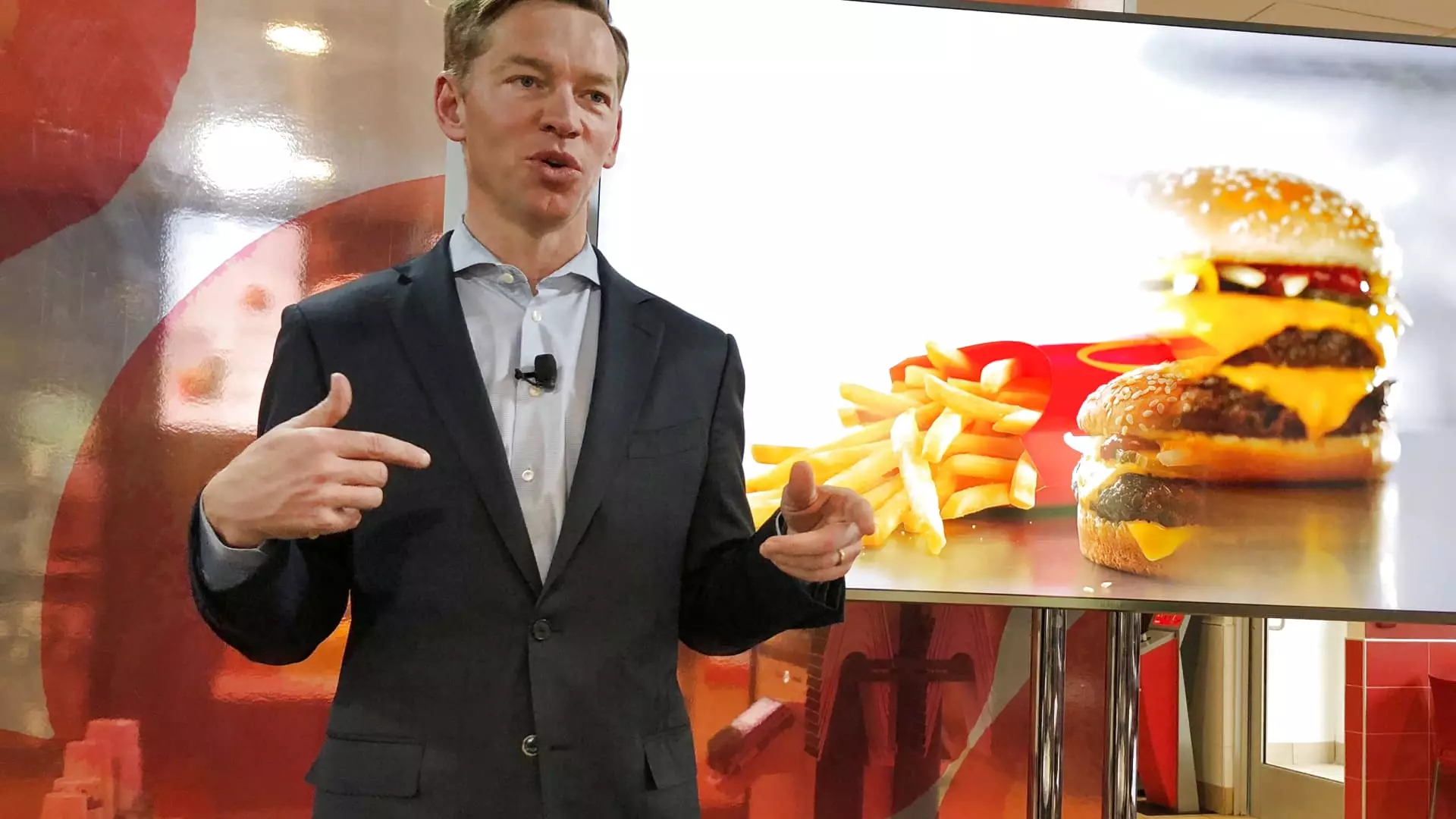In a turbulent turn of events, McDonald’s found itself embroiled in a significant public health scare when health authorities linked a fatal E. coli outbreak to its popular Quarter Pounder burgers. The circumstances surrounding the outbreak have raised pressing questions regarding food safety, corporate responsibility, and consumer trust, which are critical for a global fast-food giant. In the wake of this incident, CEO Chris Kempczinski assured investors that the crisis was under control, claiming, “How we’ve handled the issue, now that we’re moving… we view it as being behind us.” However, while corporate leaders aim to project an image of resilience and recovery, it is essential to scrutinize the implications of this claim within the broader context of public health and corporate accountability.
Initially, McDonald’s swiftly pulled Quarter Pounder burgers from about one-fifth of its U.S. locations, roughly 3,000 outlets, as consumers expressed alarm over the outbreak. During this period, the company reported a concerning decline in both daily sales and customer traffic in U.S. restaurants. This decline can be directly attributed to the immediate negative consumer response following the outbreak announcement. CFO Ian Borden stated candidly that they did not foresee a material impact on the business in the long term, but the immediate data told a different story. The incident highlights a crucial challenge that fast-food chains often face: the delicate balance between operational efficiency and consumer confidence.
With insights from Borden and Kempczinski, it is clear that McDonald’s is intent on restoring its previous sales momentum, which had been buoyed by initiatives like its $5 value meal and the introduction of the Chicken Big Mac. They deemed it imperative to reassure consumers about the safety of their food products. The health crisis not only affected the sales of the Quarter Pounder but prompted broader hesitation among patrons—many of whom may question the safety of other menu items moving forward.
The Food and Drug Administration (FDA) is still investigating the source of the E. coli outbreak, which may originate from slivered onions used in the Quarter Pounders. While McDonald’s has halted sourcing from the implicated supplier indefinitely, the broader questions surrounding food safety protocols within the fast-food industry remain unaddressed. With health authorities reporting 75 cases across 13 states and one unfortunate death associated with the outbreak, the effectiveness of the company’s food safety measures is now under scrutiny.
This situation poses vital implications for corporate accountability in the fast-food sector. The need to ensure safe food practices cannot be overstated, and the fallout from such an outbreak can tarnish brand reputations. Furthermore, the advent of lawsuits filed by victims only adds to the challenges McDonald’s faces in not just recovering its status but also in safeguarding its operational integrity.
Despite the ongoing investigations and legal ramifications, McDonald’s remains focused on restoring consumer faith in its brand. While the company has updated its operations to serve the Quarter Pounder without slivered onions at approximately 900 impacted locations, the landscape of consumer trust cannot be quickly or easily navigated. Kempczinski’s public apologies resonated during an investor call, as he acknowledged the emotional toll on customers and promised commitments to rectify the situation.
Ultimately, the success of McDonald’s recovery strategy will hinge on a few critical factors: proactive communication with the public, effective handling of legal disputes, and rigorous food safety measures. In a world of increasing scrutiny surrounding food safety and corporate responsibility, fast-food giants like McDonald’s must adapt and innovate not only to survive but to thrive. The focal point must shift towards maintaining high standards of food safety while rebuilding the trust that has been tested in the wake of this distressing outbreak. The road ahead may be fraught with challenges, but the consistent pursuit of transparency and quality assurance could ultimately define McDonald’s legacy in the years to come.



Leave a Reply